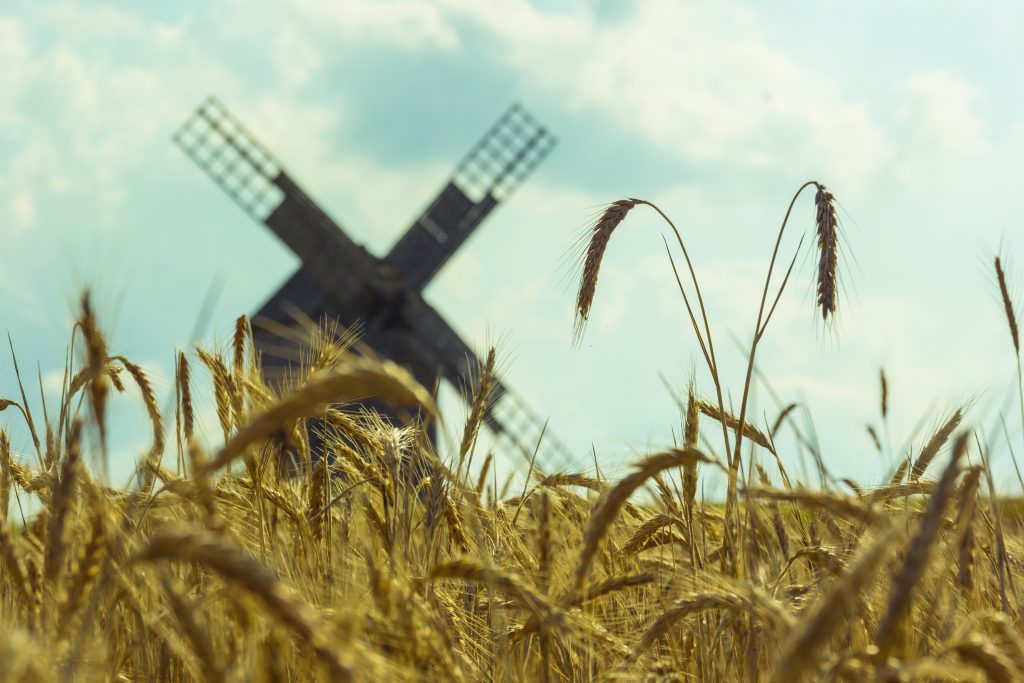Boosting Our Chances Against Climate Collapse: Future Proof Crops in Europe

The newly published report by the Intergovernmental Panel on Climate Change (IPCC) made for stark reading, forcing the global community to confront three disturbing truths- climate change is happening all over the planet, it’s getting worse, and it’s our fault. Although this most recent output from the IPCC discussed only the ‘physical science basis’ of climate change (separate reports next year will focus on its impact and potential mitigation methods), it has been clear for a number of years that the agricultural industry will not only bear the brunt of much of the consequences of a changing climate, but will also be a vital element of our efforts to curb the worst of its effects.
This was exemplified by the publication of the EAT-Lancet report in 2019, which brought the idea of sustainable food systems to the mainstream. In short, these systems would allow the global agricultural industry to operate within both health and planetary boundaries, providing adequate nutrition for a growing human population without further undermining global climate and ecosystem stability. The Farm to Fork component of the European Green Deal has since built further on this, advocating for a sustainable food system that can safeguard food security and nutritional quality without a negative environmental impact. With the next UN climate change conference, COP26, only 2 months away, the importance of agriculture in reaching the lofty goals set out in the Paris Climate Agreement will be at the forefront of everyone’s minds.
It is in this context that some of Europe’s leading plant scientists have come together to release a new opinion paper, ‘Designing the Crops for the future; the CropBooster Program’, published last month in Biology. Led by members of the European Plant Science Organisation (EPSO), the paper serves as a call to action for European plant researchers and agricultural stakeholders to mobilise and cooperate in order to future-proof European agricultural systems. Like the EAT-Lancet report, this report highlights the importance of designing food systems that meet the dietary needs of the population in a sustainable manner. However, designing such a system won’t be easy. The authors stress that these ‘future-proof’ crops must also be resilient to the emerging effects of climate change, like drought, flooding and extreme temperature events. On top of that, they will have to make do with fewer nutrient inputs, reduced pesticide use and may even have to produce similar or greater yields in diminishing areas of usable agricultural land.
The key to this, the authors believe, will be to develop breeding strategies that produce crop varieties with improved photosynthetic abilities. This will allow our crops to better utilize the quasi-unlimited resource of solar energy (current crops only convert approximately 1% of the absorbed energy into their biomass). However the carbon fixed during photosynthesis is not the only resource required by plants, and so these next generation crops will also need to better utilize water sources and nutrients like phosphorus and nitrogen. Thankfully, the new traits needed in root architecture to enable these improvements may also have a massively beneficial side-effect; helping to sequester or ‘lock-in’ greater amounts of CO2 in the soil. If this could be achieved, the arable plains of Europe would act as great carbon sinks, much like rainforests or boglands, and substantially aid the goal of reaching net-zero carbon emissions.
To achieve these leaps in crop breeding, these scientists initiated the CropBooster-P (P standing for preparatory) program in 2018. They have since been working on a preliminary roadmap that focuses on three aspects; the scientific expertise to improve crop varieties, the economic and environmental impacts of such crop improvements, and the acceptance and integration of these changes in society. The work has thus far included over 130 plant scientists, and the project leaders hope this number will grow further as the project agenda is finalised and the CropBooster program itself begins next year. As well as the support of individual plant scientists and research institutes, the CropBooster organisers also believe that governmental support from both EU member states and the European Commission will be necessary to ensure the success of the project, and future proof Europe’s crops and safeguard the continents food supply amidst an increasingly changeable climate.


